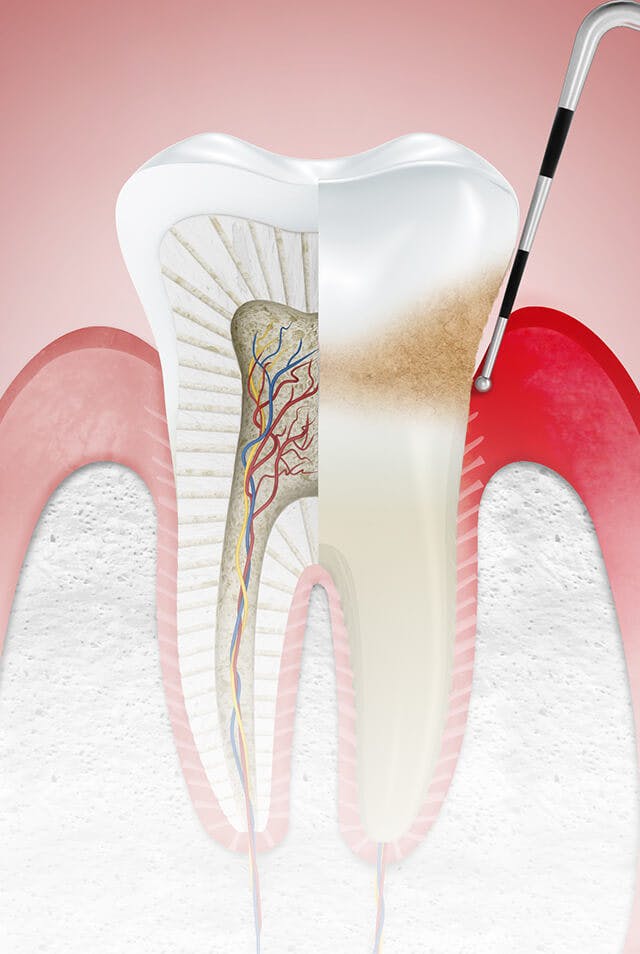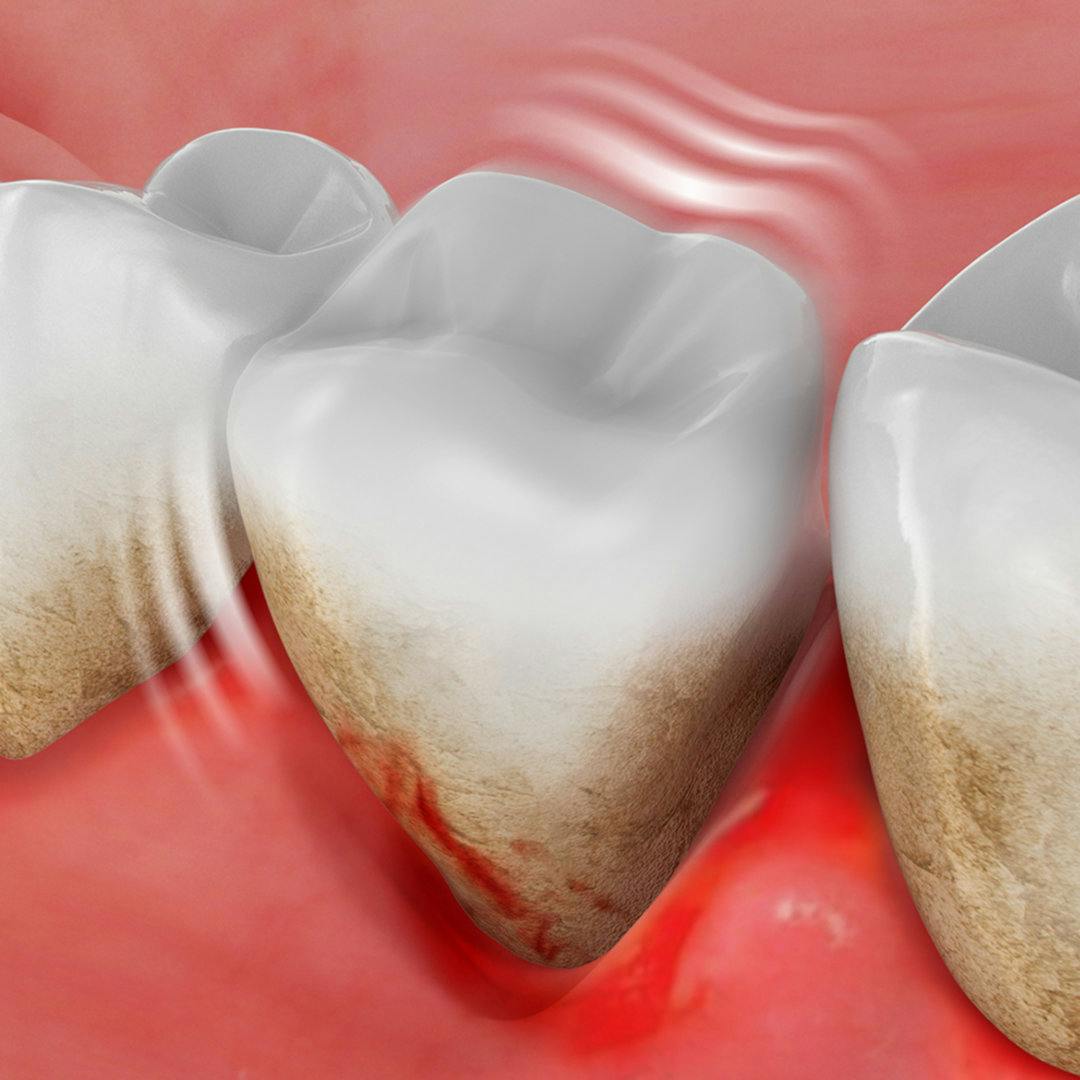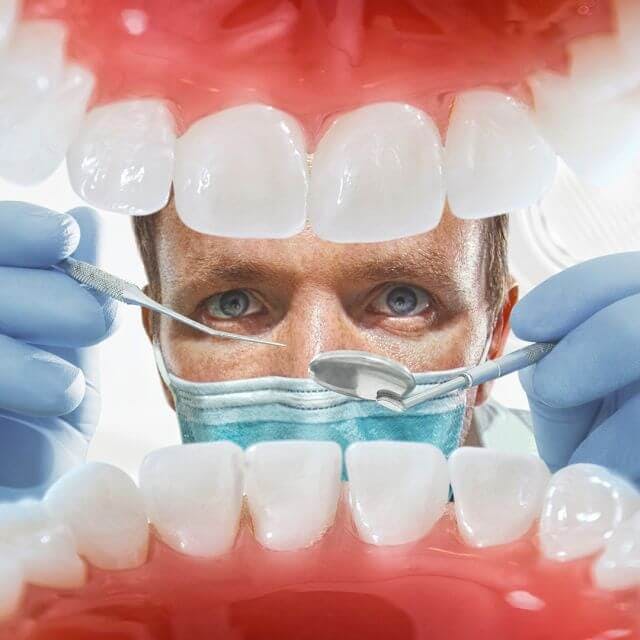Select location:
MY


Stages of Gum Disease
What is periodontitis and how can it lead to tooth loss?
Periodontitis (or periodontal disease) is a bacterial infection of the specialised tissues, ligaments and bones that surround and support your teeth, collectively known as the periodontium.
It is one of the second and most severe stages of gum disease. Once you have it periodontitis is irreversible and may lead to the permanent loss of teeth. It requires medical or dental treatment.

What causes periodontitis?
Periodontitis can occur when gingivitis is left untreated. It is caused by plaque bacteria above and below the gum line (the area where the gum meets the tooth). This can lead to the bone and tissues that support your teeth becoming irreversibly damaged.
This tissue damage may lead to your gums separating from your teeth, creating tiny spaces or ‘pockets’ where more plaque can grow and infections occur. As the condition continues to worsen the bone starts to erode. If left untreated, this can eventually result in loose teeth that either fall out or must be removed by a dentist.
Don’t ignore the warning signs
Periodontitis is the advanced stage of gum disease. Unlike gingivitis, it cannot be reversed and often has serious, long lasting consequences for how your teeth and gums look and feel. For this reason, it is extremely important that you do not let things get this far.
Spitting blood when you brush or floss your teeth, bad breath, and red or swollen gums are all early warning signs of gum disease, so do not ignore them. If you experience any of these symptoms, you should talk to your dentist or hygienist immediately. They can advise on the best course of treatment before the problem becomes too serious.
You can also reduce your risk of gum disease by maintaining a good oral care regime. This includes: twice daily brushing with a toothpaste like parodontax Daily Fluoride Toothpaste; flossing or using an interdental brush every day; and regular dental check-ups.


